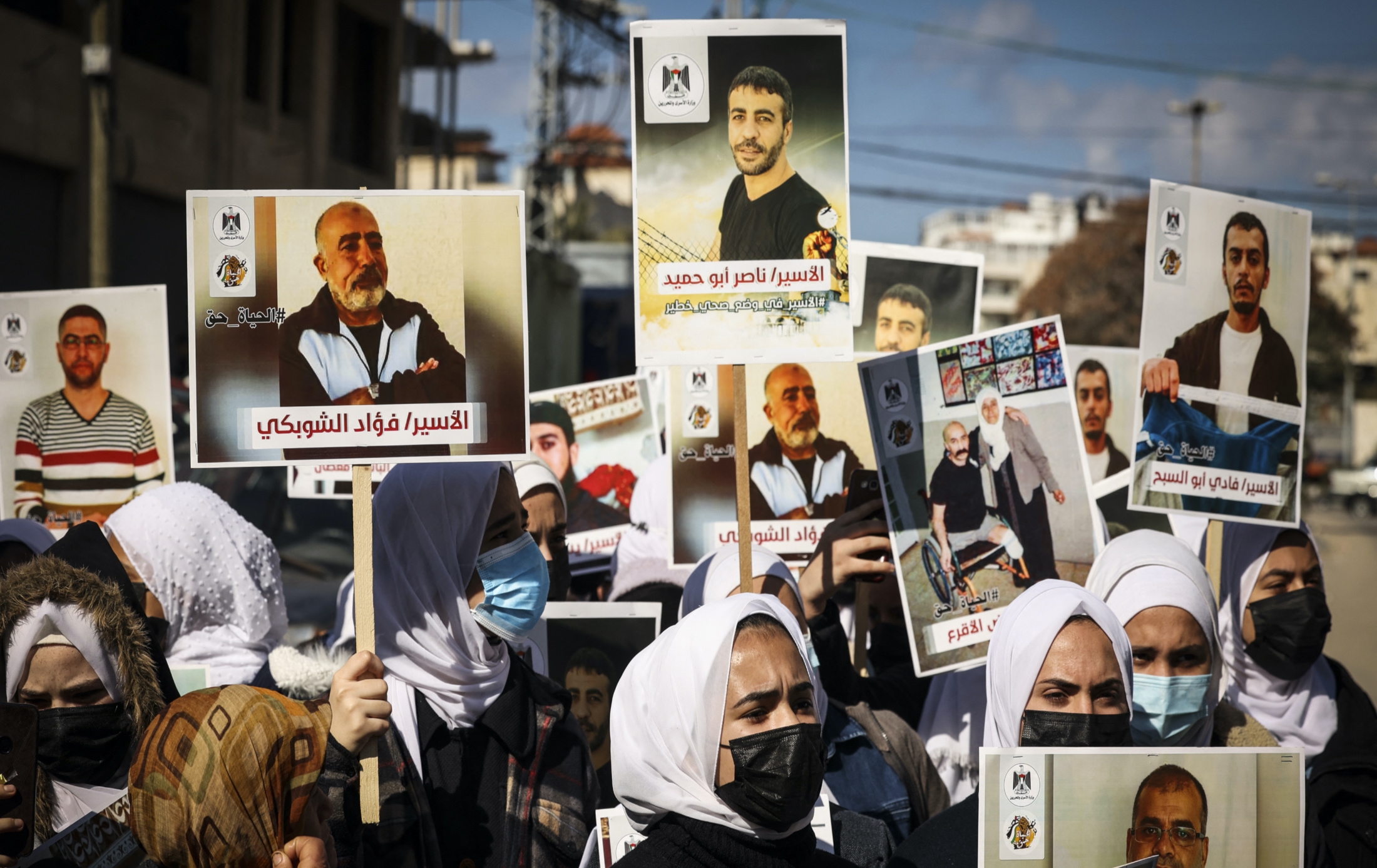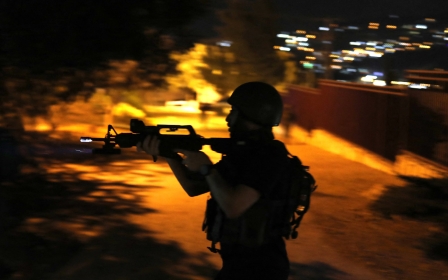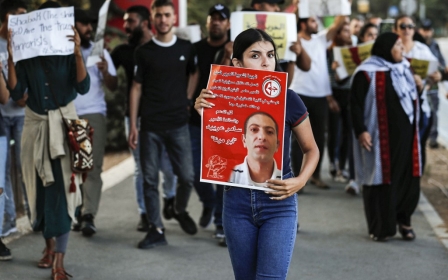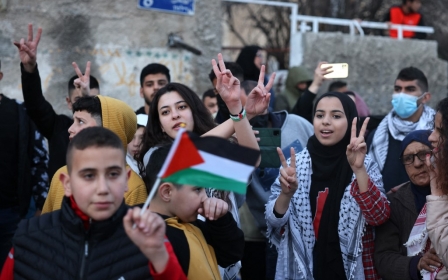Palestinian prisoners to go on hunger strike against Israel's punitive measures

Thousands of Palestinian prisoners will engage in a mass hunger strike across all Israeli prisons on Tuesday, in protest at what they are calling Israeli policies of “collective punishment” in recent months.
In addition to the prisons-wide strike, Palestinians in cities across the occupied West Bank will stage protests in solidarity with the prisoners, calling on the international community to pressure Israel to end its mistreatment of prisoners.
'The prisoners are the ones who sacrificed their lives to gain freedom for Palestine, and they are in a battle all alone in the face of an oppressive machine'
- Mohammed Abdullah al-Zaghari, Palestinian Prisoner’s Society
Tuesday’s hunger strike is set to last only one day, as the prisoners await the response of the Israeli Prison Service (IPS) to their demands. If their demands are not met, the prisoners say they are ready to launch a mass, open-ended hunger strike, similar to that of 2017.
“The conditions in the Israeli prisons are very bad at the moment, as the occupation forces increase their aggression against Palestinian prisoners,” Mohammed Abdullah al-Zaghari, president of the Palestinian Prisoners' Society, told Middle East Eye.
“These punitive aggressions have been ongoing for months,” following the escape of six Palestinian prisoners last year from Israel’s Gilboa prison, he said.
New MEE newsletter: Jerusalem Dispatch
Sign up to get the latest insights and analysis on Israel-Palestine, alongside Turkey Unpacked and other MEE newsletters
“The prison administration seeks to infringe upon the rights of detainees, forcing them to resort to escalatory steps to demand these rights.”
The strike is the culmination of weeks of protests by the prisoners over the IPS’s reduction of yard hours, also known as fora, and a number of other punitive measures in prisons, including arbitrary searches and seizures of personal belongings, increased solitary confinement orders, and preventing prisoners from receiving family visits.
'Collective punishment'
In protest at these policies, prisoners have refused to leave their cells for yard time, have been collectively returning meals, and have boycotted the prison’s medical clinics.
At the same time, 500 Palestinian administrative detainees have been boycotting the Israeli military courts, refusing, along with their legal representatives, to attend any court hearings regarding their cases.
Under administrative detention, Israel detains individuals without trial or charges for renewable periods of up to six months.
The policy imposes no obligation on the Israeli government to present any official suspicions or evidence to justify an arrest or detention - circumstances that critics argue violate international law.
Over the past two weeks, Israeli prison guards have further cracked down on Palestinian prisoners, Zaghari said, adding that IPS forces attacked prisoners, beat them, isolated them, and confiscated all their personal belongings in the Nafha, Ramon, and Megiddo prisons.
“Repressive policies and collective punishment against Palestinian prisoners is not a new tactic for the Israeli occupation,” Zaghari said, adding that by engaging in a hunger strike, the prisoners are “using their last weapon to stop the oppressive policies”.
“The prisoners are demanding respect for the human rights of prisoners according to international laws and conventions, and the return to life in prisons as it was before these collective punishment policies,” he said.
Zaghari said the condition of prisoners is a national issue, and called on Palestinians, as well as the international community, to stand in solidarity with the struggle of the detainees, who currently number 4,500.
“The participation of the Palestinian people and their support for the prisoners will help them achieve their demands,” he said.
“The prisoners are the ones who sacrificed their lives to gain freedom for Palestine, and they are in a battle all alone in the face of an oppressive machine.”
Middle East Eye delivers independent and unrivalled coverage and analysis of the Middle East, North Africa and beyond. To learn more about republishing this content and the associated fees, please fill out this form. More about MEE can be found here.





